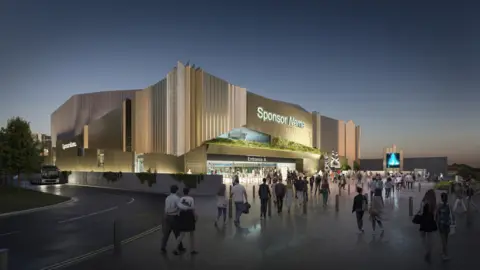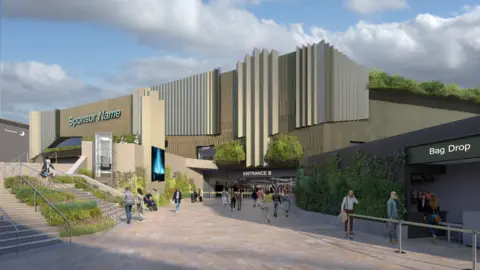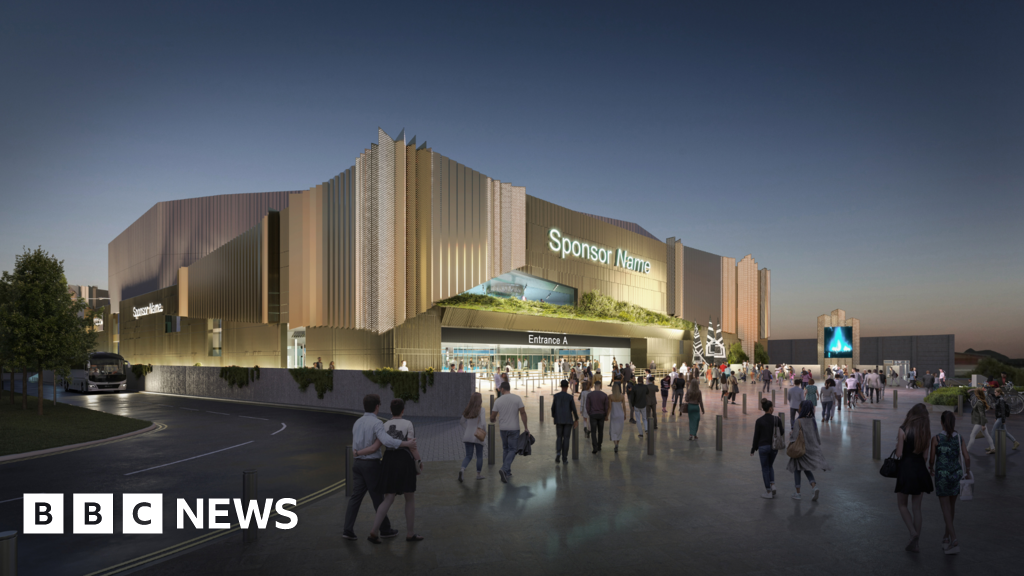 AEG Europe
AEG EuropePlans to build an 8,500-capacity indoor arena on the outskirts of Edinburgh have been approved.
Entertainment giants AEG hope to start work on the £80m project at Edinburgh Park in 2025 after the city’s council gave the green light for the development.
The venue will sit on part of a vacant site near a train station and tram stop previously earmarked for office space.
AEG, who also operate the O2 Arena in London, said the first acts could take to the stage in 2027.
The company was the promoter behind Taylor Swift’s trio of sold out shows at Murrayfield Stadium last weekend.
Councillors gave their backing to the plans – which AEG claim could create up to 700 jobs – following a meeting of the development management sub-committee on Wednesday.
It will cover 18,500 square metres across three levels and attract an estimated 700,000 visitors per year, AEG said.
AEG Europe executive vice president Alistair Wood told the committee it had considered sites in Leith and Meadowbank as well as near the capital’s airport before deciding on the Edinburgh Park location.
He said it would fill a “massive gap in the market” for a major arena in the city.
Mr Wood added: “Having worked closely with City of Edinburgh Council, we strongly believe the arena will deliver huge benefits to the city throughout every stage of the building’s life cycle from development to completion, for years to come when we’re bringing the world’s best artists to the Scottish stage.”
 AEG Europe
AEG EuropeNaming rights for the venue, known as the “Carlton Arena” during the planning stage, will be sold off to a sponsor prior to its opening.
Edinburgh is one of the UK’s largest cities not to have a major indoor entertainment venue.
More than 220,000 people attended the first three UK dates of Taylor Swift’s Eras Tour at the national rugby stadium.
The capital’s largest indoor music venue, the former Corn Exchange now known as the O2 Academy, has a capacity of about 3,000.
Previous proposals for an 8,000-capacity arena at Straiton, south of Edinburgh, were tabled by Lothian Leisure Development and backed by Birmingham venue owners NEC in 2019, but failed to get off the ground.


